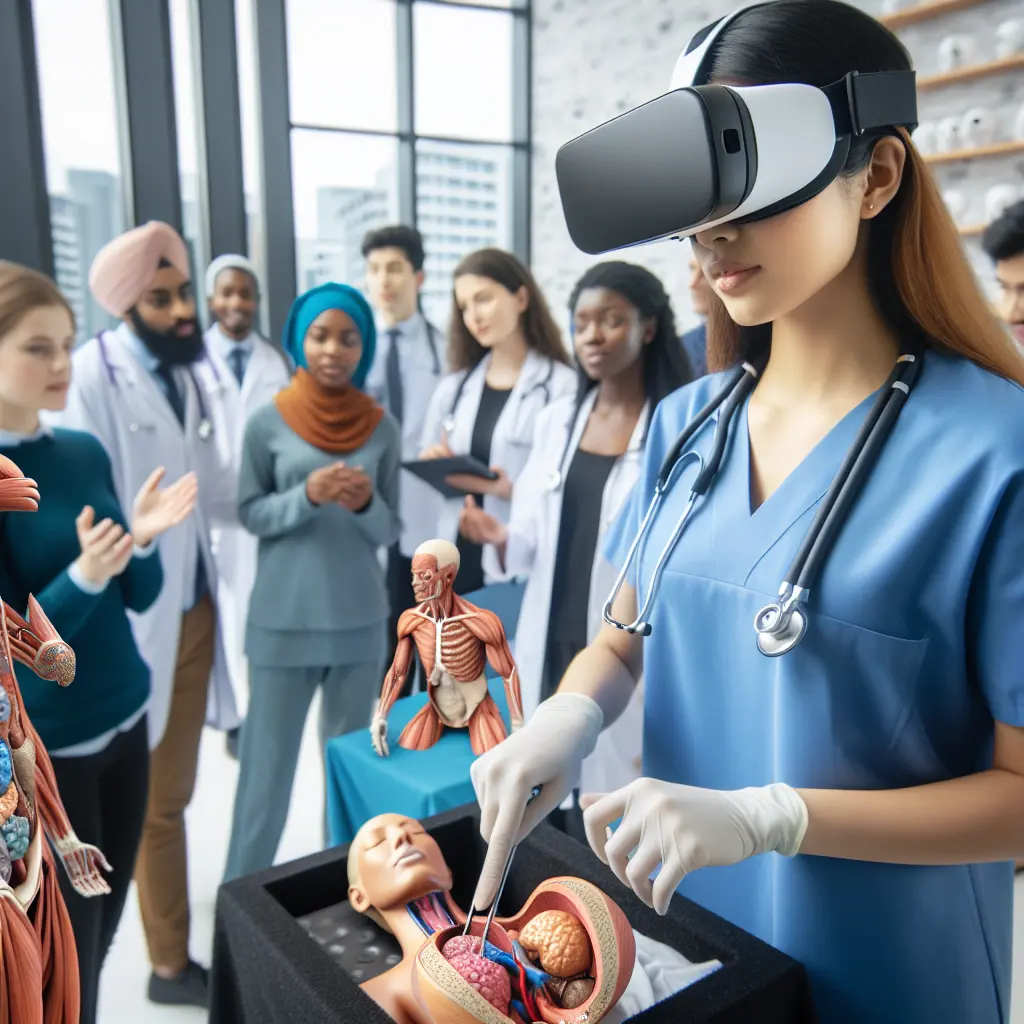
In the fast-evolving landscape of healthcare, Virtual Reality (VR) has carved out a significant niche, particularly in the field of surgical training. The integration of VR technology into medical education is not just a futuristic concept but a present reality that's reshaping how surgeons prepare for the operating room. This profound transformation is evident through various VR applications, from immersive surgical training to virtual reality surgical procedures.
The Rise of Virtual Reality in Medicine
The adoption of Virtual Reality in medicine, particularly VR surgical training, represents a paradigm shift in medical education and practice. The immersive nature of VR allows for a highly detailed and interactive environment where surgeons can practice complex procedures without the risks associated with live surgery. This technology is not merely about simulation; it's about enhancing the precision and skills of healthcare professionals in a safe and controlled setting.
One of the compelling aspects of VR in medical training is its ability to simulate real-life surgery scenarios. VR surgery simulation platforms, such as those provided by leading VR in medicine pioneers, offer a spectrum of surgical procedures that can be practiced repeatedly. These simulations include everything from routine operations to rare and complex surgeries that a surgeon might not frequently encounter.
Recent News and Updates
While the healthcare sector sees substantial benefits from VR, the tech industry continues to evolve, sometimes unpredictably. A notable development is Meta's decision to close Ready at Dawn Studios, a first-party VR game studio known for its Echo series. Despite this, Meta continues to influence the VR landscape significantly, as highlighted by Meta's CTO Bosworth's insights into future VR headset technologies expected by 2031.
Further emphasizing the growing footprint of VR in various sectors, Sony's recent price reduction on PlayStation VR2 makes VR technology more accessible, potentially influencing its adoption in non-gaming sectors, including medical VR applications.
Virtual Reality Surgery: A Tool for Today and Tomorrow
The practical applications of Virtual Reality surgery are extensive. For instance, VR surgical education not only provides a platform for learning but also helps in planning actual surgeries. Surgeons can use VR to visualize complex operations beforehand, improving their understanding and strategizing the procedure more effectively.
Moreover, with innovations like Meta's new patent mimicking Apple's EyeSight feature aimed at reducing social isolation in VR settings, the potential for collaborative and remote VR surgical training becomes even more promising. Such features can enhance the learning process by allowing trainees to engage with mentors remotely in a more connected and interactive way.
VR Surgical Training: Benefits Beyond the Basics
The advantages of VR surgical training extend beyond just safety and risk mitigation. They include:
- Cost-effectiveness: Reducing the need for physical resources typically used in training.
- Accessibility: Making high-quality training available regardless of geographical location.
- Data Collection: Enabling the gathering of detailed performance data to tailor and improve training programs.
Immersive Surgical Training: Challenges and Solutions
Despite its benefits, implementing Virtual Reality medical training isn't without challenges. These include high initial setup costs and the need for continual software updates and maintenance. However, the long-term benefits, particularly in enhancing surgical outcomes and patient safety, significantly outweigh these initial hurdles.
The Future Outlook
As we look towards the future, it's clear that VR technology in surgery holds remarkable potential. Predictions by industry leaders like Meta's Bosworth about future VR headsets indicate a trend towards more advanced, user-friendly, and integrated VR solutions, which could further revolutionize how surgical training and operations are conducted.
Furthermore, developments such as the integration of AI with VR, as seen in Meta AI enhancements for Meta Quest devices, suggest a future where VR tools become even more intelligent and adaptive to individual learning needs.
Conclusion
Virtual Reality is transforming surgical training in profound ways. From enhancing the learning experience with immersive simulations to improving surgical precision and patient outcomes, the benefits of VR in medicine continue to grow. As technology advances and becomes more integrated into healthcare settings, we can expect Virtual Reality to become an indispensable tool in medical education and practice.
The journey of integrating VR into healthcare is an exciting frontier filled with opportunities for innovation and improvement in surgical care quality. As we continue to explore these possibilities, one thing remains clear: the future of surgical training lies within the virtual realms that we are only beginning to explore.
Authored by Elise Hawthorne
Elise Hawthorne is a dedicated medical technology writer passionate about innovations that improve healthcare practices and patient outcomes.